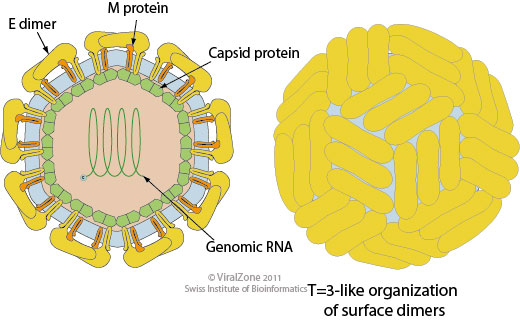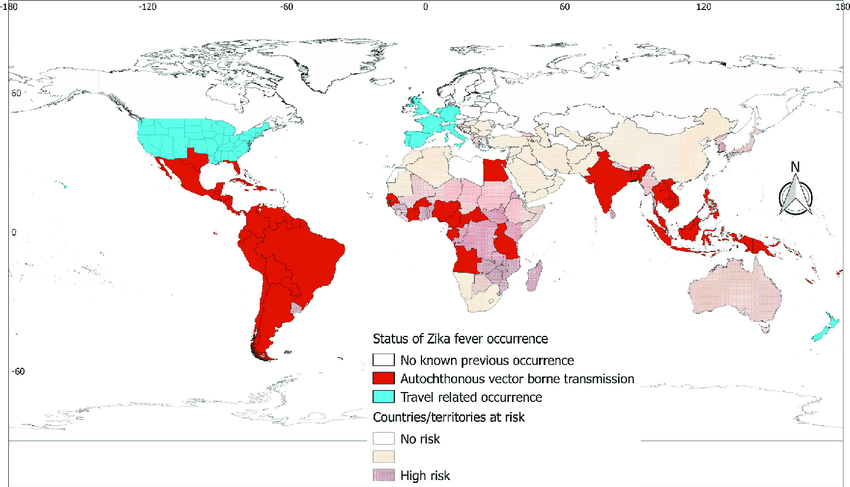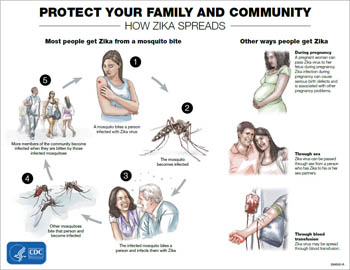Scientific Name: ZIKV

Morphological Information
Zika virus is spherical with an envelope and a capsid containing the RNA. Surface proteins are organized in the fashion shown to the left.
Identification Methods
Nucleic acid amplification tests (NAAT) are used to detect the genomic material of Zika virus.
LIFE CYCLE
- A mosquito becomes infected when it takes a blood meal from an infected human
- The virus goes into the mosquito’s saliva over 8-12 days
- The virus goes from the mosquito’s saliva to the human’s blood when it bites another person
- The person becomes infectious after about a week and then is actively infectious for up to 7 days
- Viral envelope attached to protein E receptors on host cell
- The virus fuses with the membrane and the RNA is released into the cytoplasm
- The RNA is translated into a protein
- Replication occurs in the cytoplasm in humans and in the nucleus in mosquitoes
- The genome is replicated
- The virus is assembled at the ER and the Golgi apparatus transports the virion buds
- The the virion is cleaved and matured
- New virions are released via exocytosis
HOST INFORMATION
- Humans are the definitive hosts
- Mosquitoes from the Aedes species are the intermediate hosts
- It is possible for humans to transmit the virus without the mosquito intermediate
- Can pass from mother to child during preganancy
- Can be transmitted through sex
- Can be tranmitted through blood transfusion
- The resevoir is most likely a non human primate
- People are at greater risk of getting zika virus if they live or travel in tropical or subtropical areas such as countries in Central, South, and North America and islands near West Africa
- Having unprotected sex also increases the risk of transmission
- There is no treatment or vaccination for Zika

GEOGRAPHIC DISTRIBUTION
The Zika virus epidemic took place from 2015 to 2016 and was endemic in Brazil and other parts of South and North America.
SOURCES
https://viralzone.expasy.org/6756
https://necsi.edu/zika-virus-disease-and-transmission
https://www.cdc.gov/zika/prevention/transmission-methods.html
https://www.mayoclinic.org/diseases-conditions/zika-virus/symptoms-causes/syc-20353639
https://www.youtube.com/watch?v=Ar9zKs1Z9X8
https://www.viprbrc.org/brc/staticContent.spg?decorator=flavi_zika&type=About&subtype=ZIKV
